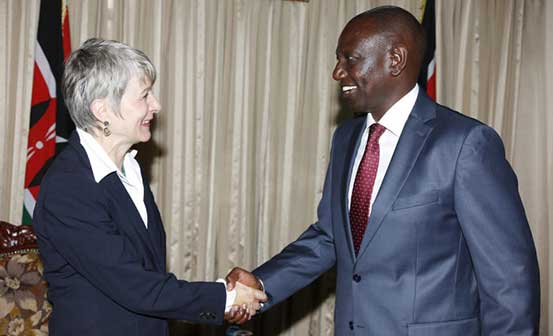
Kenya will shelve the ‘toxic’ clauses in the Companies Act that demand citizens own a 30 per cent of all foreign companies as a pre-condition to be allowed to operate locally, Deputy President William Ruto has said.
Giant companies like Google and General Electric are required to have Kenyan shareholders under the new law, a condition that is impractical. “We will look for a way of correcting the situation so as to create a favourable climate for investments,” Mr Ruto said yesterday while hosting German Ambassador to Kenya Jutta Frasch.